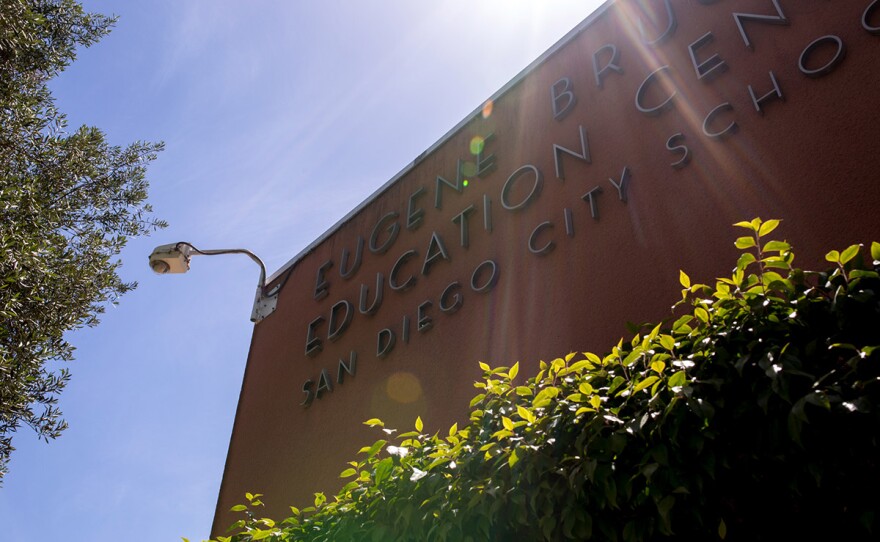UPDATE: 5:27 p.m., Nov. 5, 2020
San Diego voters passed two ballot measures that would change the way the San Diego Unified School District school board members are elected and held accountable.
Measure C, which would discard the current model of an at-large election for school board members, who would be elected on a by-district basis, is passing early with 70% of the vote.
Measure D, which would give the school board a mechanism for removing trustees convicted of wrongdoing, is passing with 87% of the yes vote.
Original Story
Two local ballot measures focusing on the San Diego Unified School District could change the way school board members are elected and held accountable.
If Measure C passes, school board members would be elected on a by-district basis, discarding the current model of an at-large election. If Measure D is successful, the district’s school board would be able to vote out board members who have been convicted of crimes or found to be neglecting their responsibilities.
Measure C
San Diego Unified currently operates under a hybrid model. During the primary, only voters from a candidate’s subdistrict can cast ballots. In the November general, voters from across the entire school districts can vote in races for all subdistricts.
Supporters of Measure C say at-large elections can suppress the votes of minority voters within subdistricts by giving disproportionate power to a white majority in the city.
Sharon Whitehurst-Payne, an incumbent board member running for re-election in Sub-District E, took second place in the 2016 primary but won in the general. She supports Measure C.
“My main reason for supporting it has to do with simplification,” she said. “It’s so complicated for folks to understand why we have district-only and citywide.”
Whitehurst-Payne’s challenger LaWana Richmond said Measure C could also reduce the cost of campaigning. Richmond said the cost of campaign mailers are drastically higher for an at-large race.
“In the primary, I was able to get on a couple of them for a total of $1,000,” she said. “For the general election, just to get on one, they wanted $5,000”
Outgoing Board President John Lee Evans, however, said he is voting against the measure. He said it could incentivize board members from more affluent subdistricts to neglect the needs of students across the entire district.
“When I was running I was accountable to the voters in the entire district as opposed to taking my subdistrict, getting the resources we need and not paying much attention to what’s going on in other areas,” he said. “That’s a potential detriment if it were to pass.”
RELATED: San Diego Measures C And D Focus On School Board Elections And Accountability
Measure D
Whitehurst-Payne, Richmond and Evans, however, all support Measure D. They said the school board needs a mechanism for removing trustees convicted of wrongdoing. Currently, the only way to oust a board member is a costly recall and special election process.
If Measure D passes, trustees could vote out a board member with a three-fourths vote as long as the board member has been convicted of a crime or found by a judge to have neglected his or her duties.
“The measure does not allow for an unpopular board member to be removed for some small reason,” Evans said. “It has to be very major.”






